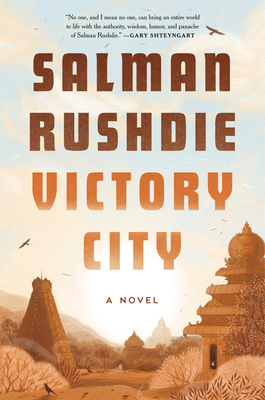What do you think?
Rate this book


336 pages, Hardcover
First published February 7, 2023
‘History is the consequence not only of people’s actions, but also of their forgetfulness.’I couldn’t help but mull over this sentiment of the author in the light of the dastardly attack on him last year – an attack that, eventually, impacted his vision in one eye and movement of one arm. An attack for likely something he was accused of more than three decades ago. Who would have, including the intimidating Sir Rushdie, thought that what he wrote a couple of months/ years back in Victory City shall play upon him, like a trick-assumed-life?'
’In this way, Pampa learned the lesson every creator must learn, even God himself. Once you had created your characters, you had to be bound by their choices. You were no longer free to remake them according to your own desires. They were what they were and they would do what they would do. This was ‘free will’. She could not change them if they did not want to be changed.Perhaps this perspicacity provides him the courage to carry on despite the unexpected threats lurking around, and the spirit to shift base to a better world, if need be, like his character who successfully flew away despite having only a cheel’s feather for company.